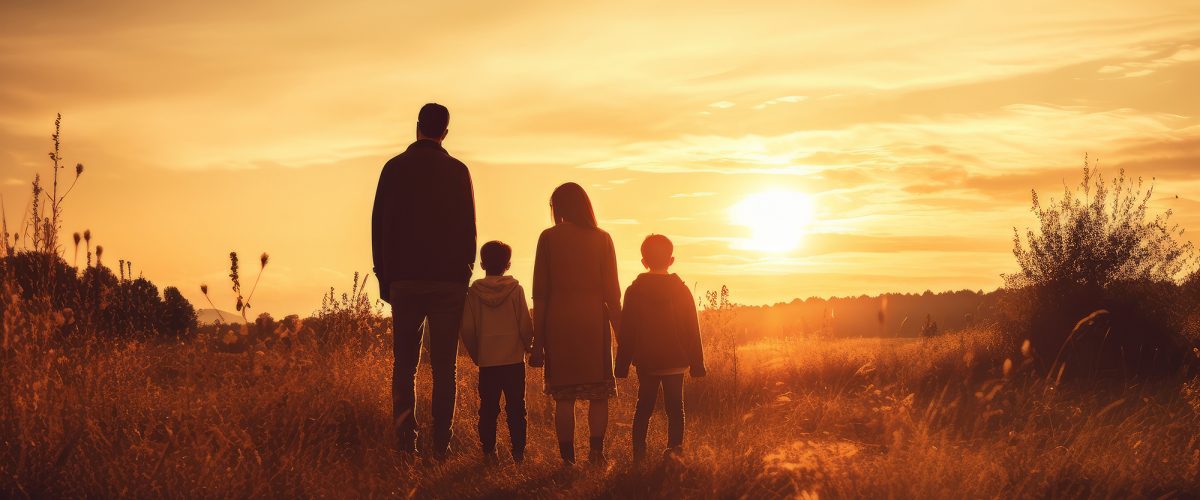The base of the Republican Party is controlled by white evangelical voters, people who punch above their weight because they have been reduced to utter despair. Animals are particularly dangerous when cornered or wounded, and American white evangelicals are both.
There is more to the Religious Right than white evangelicals, of course. More than half of white Mainline Protestants vote GOP, as do a slight majority of white Catholics. Increasingly, though, religious conservatives of all stripes are taking their political cues from white evangelicals. That’s where the passion lives.
Donald Trump is a creature of his base, and his base is a projection of white evangelical angst. Trump knows what they want and feeds it to them with a shovel. A transactional relationship has blossomed into a romance for the ages.
“Donald Trump is a creature of his base, and his base is a projection of white evangelical angst.”
In the immediate aftermath of the January 6 insurrection, Republican leaders such as Mitch McConnell, Lindsey Graham and Kevin McCarthy lined up to denounce a disgraced president. But when the GOP base signaled that Trump was still their man, the leaders backed off. Trump was dispensable; the base was not.
White American evangelicals can be found in every community in America, but they tend to inhabit small towns in the South and Midwest. While some are highly educated, most lack college degrees. While their political clout is growing, the white evangelical tribe is experiencing a sharp numerical decline. According to a Pew poll, white evangelicals comprised only 14.5% of the American electorate in 2020 compared to 23% in 2006. But the decline of this aging demographic (most are over 65) only heightens a desperation that is spreading to other religious and political conservatives. White evangelical angst is contagious.
There is nothing specifically religious about white evangelical dread. Progressives tend to ascribe the ferment within the GOP base to simple racism coupled with a perceived loss of cultural hegemony. That analysis is inadequate.
A complex of shared stories
White evangelicalism may be best understood as a complex of shared stories. Stories harvested from the Bible, stories celebrating the high points of American history and stories honoring America’s unique relationship with Almighty God. These stories are valued because they inspire a diverse people with a common purpose. Our stories tell us who we are.
White evangelicals are a pragmatic people. Their stories are true because they work. They shape a particular kind of identity. And if the stories die, white evangelicals believe, the nation will implode into a heap of rubble.
“The evangelical reverence for the Bible has been transferred to the U.S. Constitution.”
The evangelical reverence for the Bible has been transferred to the U.S. Constitution and, in equal measure, to the traditional rendition of American history. Hallowed tales about Thomas Jefferson’s personal piety, George Washington’s humility, George Custer’s heroism and the heroic resolve of the Pilgrim Fathers take on the authority and weight of holy Scripture. Columbus sailing the ocean blue. The Mayflower Compact. The rallying of the troops at Valley Forge. Manifest Destiny and westward expansion. The “war of northern aggression” (as it is still called in some parts of the South). America’s role in saving the world from tyranny in two world wars. These sacred narratives, retold in American classrooms for the better part of the 19th and 20th centuries, shaped a nation.
White evangelicals see America as the essential nation; a people created, called and empowered by Almighty God for a special purpose. In the fashion of ancient Israel, America has often lost her way; but she always has found her way back to God. The First and Second Great Awakenings and the work of revivalists like Dwight L. Moody, Billy Sunday and Billy Graham weren’t just religious events; they were solemn acts of covenant renewal.
A nation of nuclear families
For white evangelicals, America is a nation of nuclear families. The highest calling of men and women is to find a mate (of the opposite sex, naturally), get married and raise godly families. The sex drive is valued to the extent it helps this process along but is otherwise distrusted or demonized. Parents subordinate personal fulfillment (sexual, professional and otherwise) to the holy project of raising Christian patriots. Men work hard so they can provide for their families; women serve as full-time caregivers until the children are out of the nest.
Because every child needs both a mother and a father, heroic efforts are made to preserve troubled marriages. Husbands and wives should love one another, but their primary responsibility is to their children. From the earliest age, children should be seen as potential parents, church members and citizens. Because the United States of America is one nation under God, children should be taught to honor the flag, civic leaders, pastors, law enforcement, military officers and court officials as servants of God.
An idealized vision
This is an idealized vision. White evangelicals realize this. The realities of American civic life rarely have conformed to evangelical expectation. But evangelical Christians always enjoyed a seat at the table. They might not be able to keep the politicians in line, but at least political gatherings and legislative sessions began with prayer. Public servants and trial witnesses take solemn oaths on the Bible. Even high school football players bow in prayer on game night. Hollywood has been viewed with suspicion, but evangelicals ensured that cussing and sex scenes remained within the bounds of propriety. In a thousand different ways, evangelical influence has been acknowledged in the rituals of American life.
“In a thousand different ways, evangelical influence has been acknowledged in the rituals of American life.”
Until it wasn’t.
Cracks in the dam were visible as early as the 1950s. That’s when Martin Luther King suggested the promise of liberty and justice for all didn’t apply to Black people. That’s when the Supreme Court kicked God out of the schools and enforced integration at the point of a gun. Eventually, people were protesting “systemic racism” and “homosexuals” (white evangelicals avoid inclusive acronyms) were calling for gay marriage.
Children were left alone at home because mothers were pursuing careers of their own. Laws against divorce, birth control and abortion were eased or illuminated. The sexual revolution encouraged adults to exchange parental responsibility for personal fulfillment.
Meanwhile, the American history taught in universities was reduced to hellish stories of genocide, slavery, rape, Jim Crow racism, ruthless colonial expansionism and union busting. Wherever you looked, once-venerated heroes were losing their halos.
As a new century dawned, leading scientists were characterizing the fossil fuels that had long driven the engine of American greatness as an existential threat.
By the time Donald Trump descended his golden escalator in 2015, every element of the once-glorious story had been swept aside, replaced by nothing.
Why it’s not about the economy
This gloomy verdict explains why neither a drop in the price of eggs, a rebounding stock market, the easing of inflation or even a significant rise in income can improve the poll numbers of liberal politicians. The white evangelical world is on fire.
“White evangelicals have little desire to debate the components of their worldview.”
White evangelicals have little desire to debate the components of their worldview. They have always accepted the maxims of their political-historical-religious outlook on faith. We are wrong because we have driven God out of the world.
In their view, the devilish implication of secular thinking must be opposed by all means necessary. Viewed against this backdrop, the ferocity of the January 6 insurrection, and the white evangelical refusal to abandon Donald Trump, become comprehensible.
As a consequence, nothing Trump says or does can outrage his base, so long as he mirrors their lament. The more bitter the vitriol becomes, the better his people like it. Every new criminal indictment filed against their champion confirms their fears and hardens their resolve.
For 20% of white evangelicals, Trump is a bridge too far. These people have been silenced and, in many cases, exiled from their tribe.
What to do?
How should non-white and non-evangelical Americans respond?
Copycat contempt just heightens the sense of desperation. Pointed critiques of white evangelicals may garner a few likes on Facebook, but they don’t change minds.
Are white evangelicals wrong about everything? We may not talk about it too much, but most of us behave as if we are concerned about the future of our children. We may believe marriage partners bear equal responsibility for breadwinning and child-raising equally, but we grieve for kids who go without love and care.
And maybe the America-is-the-worst-country-ever meme needs a little nuance. We must repent the sins of history in clear and unmistakable terms; but we aren’t superior, morally or philosophically, to our great grandparents. Progress and backsliding both are part of the picture.
The American story is replete with monstrous and depressing episodes, but heroism and great love are in the mix as well. Elements of triumph and tragedy are hopelessly tangled. Both must be acknowledged.
No one wins a culture war. Our white evangelical brothers and sisters are an established feature of the American social terrain. They have a constitutionally protected right to air their grievances and, viewed through the lens of Christian faith, they are image-bearing sons and daughters of God.
I don’t want white evangelicals sitting at the head of the American table, but they deserve a seat. I fear my generation is too weary of fighting religious battles to embrace a more hopeful vision of the future. If we are to find a way out of the current morass, our sons and daughters must prophesy.

Alan Bean
Alan Bean serves as executive director of Friends of Justice. He is a member of Broadway Baptist Church in Fort Worth, Texas.
Related articles:
A call for immoderate mediators: David Gushee defends democracy from its Christian enemies | Analysis by Alan Bean
The white evangelical war on truth | Analysis by Joel Bowman


